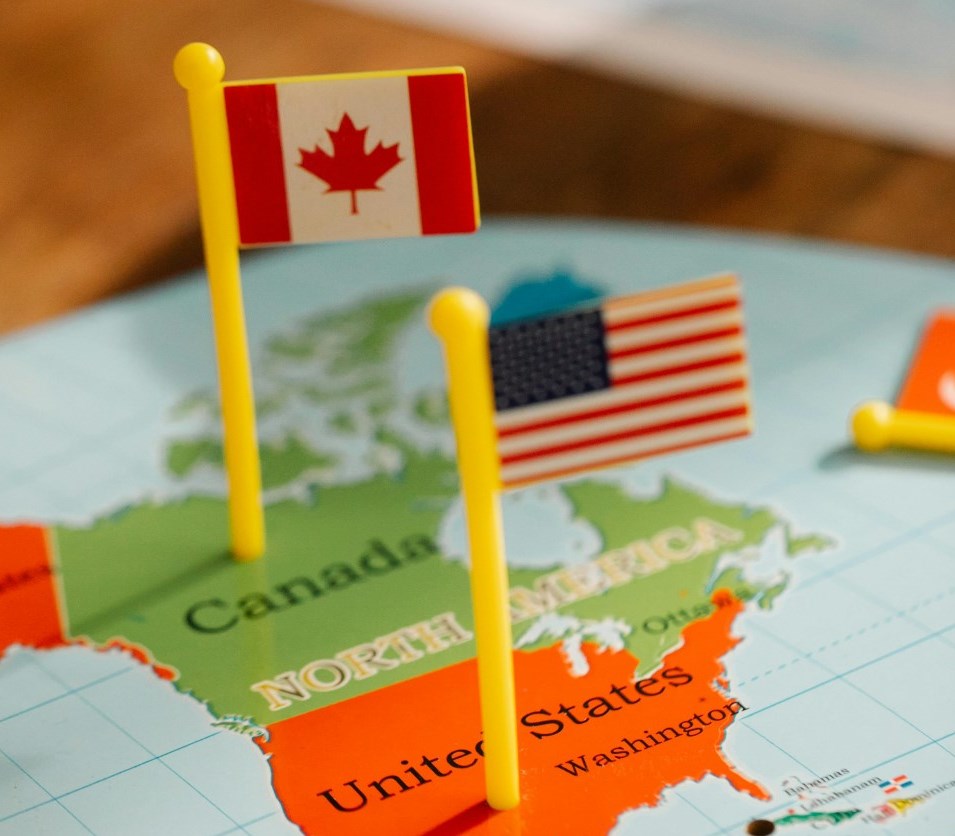Donald Trump is set to return to the White House, raising questions about the direction of U.S. policy and its impact on Canada. The stakes are particularly high for Canada’s energy sector, a cornerstone of its economy.
The relationship between the two countries has been tense before, with Trump’s former trade representative, Robert Lighthizer, describing U.S.-Canada ties during Trump’s first term as “at their lowest ebb since the failed American invasion of Upper Canada during the War of 1812.”
At the heart of the issue is Canada’s heavy reliance on the U.S. for trade. More than 77 per cent of Canadian exports go to its southern neighbour, contributing to 60 per cent of Canada’s GDP. Energy dominates this relationship. Canada, the world’s fourth-largest oil producer, exported the bulk of its four million barrels per day of crude oil to the U.S. in 2023. Most of this oil travels through pipelines to refineries in the Midwest, a region crucial to Trump’s political base, where affordable energy is a key issue for voters.
However, Trump’s promise to impose a 25 per cent tariff on all imports, including Canadian goods, has sparked alarm. The Canadian Chamber of Commerce has warned that such a policy could take a $30 billion toll on the Canadian economy. This is no small concern, particularly for a sector already navigating challenges such as fluctuating global oil prices, limited pipeline capacity, and competition from other energy producers.
While Trump’s tariff proposal has created significant uncertainty, many industry analysts believe Canadian oil will likely be exempted due to its strategic importance to U.S. energy needs. A Reuters report underscored that U.S. refineries heavily rely on Canadian crude, particularly the heavy sour variety that many Midwest and Gulf Coast facilities are designed to process.
Commodity Context analyst Rory Johnston emphasized that “Prospects of Trump imposing tariffs on Canadian barrels are extremely slim.” He added that while unlikely, a tariff would still be a significant blow: “Canada is uniquely vulnerable to market pressure posed by U.S. refineries, given our lack of alternative egress.” Johnston estimated that a 25 per cent tariff could drastically increase the discount on benchmark heavy crude, further straining Alberta’s oil sector.
This vulnerability stems from Canada’s limited pipeline infrastructure and export options. Without alternative markets or sufficient transportation capacity to reach global buyers, much of Alberta’s oil remains tied to U.S. refineries. If U.S. demand were to slow, Canada would face bottlenecks and depressed crude prices.
Not everyone is pessimistic. Michael Catanzaro, a former Trump energy adviser, sees opportunities for collaboration rather than conflict. Speaking at a Washington forum, he said, “We should double down on the fact that the U.S. and Canada together can be this powerful force.” He suggested that Trump’s vision of energy dominance and affordability could include Canadian oil as a critical component rather than a competitor.
U.S. refinery operations provide additional context. Many facilities, especially in the Midwest and Gulf Coast, have invested heavily in equipment to process Canadian heavy crude, which is harder to refine but often cheaper than lighter U.S. shale oil. This reliance means that imposing tariffs could increase costs for U.S. refiners and push fuel prices higher for American consumers – an outcome Trump is unlikely to favour, given his focus on affordability.
For now, the Canadian energy industry can only speculate. The potential for tariffs, the continuation of strong energy ties, and the evolving priorities of the incoming administration all hang in the balance. What’s clear is that Canada’s energy sector remains deeply intertwined with U.S. policies and politics.
As January 20 approaches, the industry will watch closely to see how Trump’s return to power shapes the future of this crucial relationship.
Toronto-based Rashid Husain Syed is a highly-regarded analyst specializing in energy and politics, with a particular emphasis on the Middle East. Besides his contributions to local and international newspapers, Rashid frequently lends his expertise as a speaker at global conferences. Organizations such as the Department of Energy in Washington and the International Energy Agency in Paris have sought his insights on global energy matters.
©
The commentaries offered on 麻豆视频.ca are intended to provide thought-provoking material for our readers. The opinions expressed are those of the authors. Contributors' articles or letters do not necessarily reflect the opinion of any 麻豆视频.ca staff.




